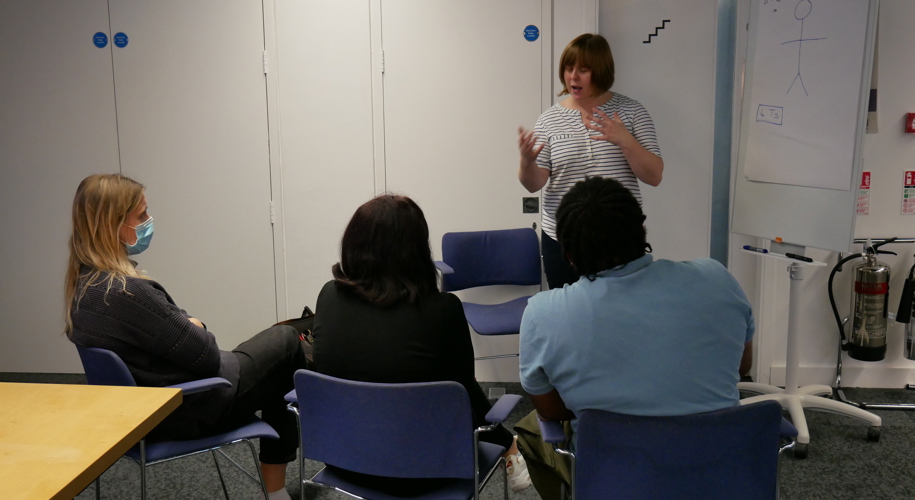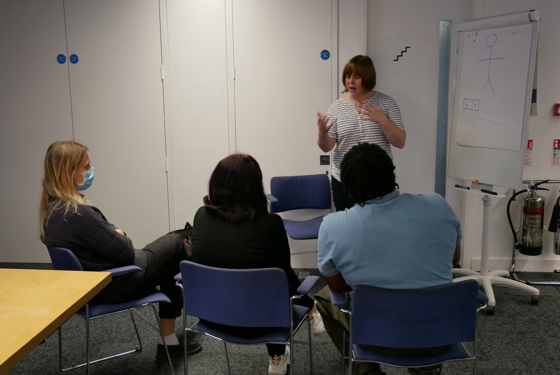Guidance and advice about ARCP outcomes related to the matrix of educational progression. For information about the possible ARCP outcomes visit ARCP (Annual Review of Competence Progression)
Matrix of educational progression
The Matrix of Educational Progression (ST1-7) is available to all trainees at the start of the academic year and they will be assessed against it at the next ARCP. If a trainee achieves all the standards for that training year as listed in the matrix then they should be issued with an ARCP outcome 1. The Matrix defines the minimum standard required. Trainees are encouraged to exceed these requirements.
Timing of the annual assessment in relation to training year
It is acknowledged that not all trainees are being assessed at the end of their training year due to the timing of the ARCPs and changes in an individual’s anticipated CCT date for a variety of reasons.
Likewise many trainees have an annual ARCP (calendar years) whilst not undertaking 12 months of fulltime training during the time since the last assessment e.g. Less than full time training (LTFT).
In this situation the ARCP panel will judge the progress the trainee has made during, the time period, pro rata against the standards detailed in the Matrix (which describe the standards to be achieved over a 12 month period).
The educational supervisor must confirm that the trainee has met the specific requirements to pass through way points (see below). Alternatively a panel may wish to have a further formal assessment.
ARCP outcome 1
An outcome 1 is issued if the trainee has gained the competences and standards for the training year (or part of), as described in the RCOG training matrix.
Failure to achieve all the competencies and standards
If there is failure to achieve any standard for that training year then the trainee should not be issued an outcome 1. The determination of which alternative outcome will be made by the ARCP panel with the advice and support of the Deanery as appropriate. This document provides the RCOG guidance for the ARCP outcome to be issued for trainees who fail to achieve the standards. The purpose is to provide consistency between deaneries, and within deaneries between ARCP panels.
ARCP outcome 2
The issuing of an outcome 2 signifies that the development of specific competences are required, but additional training time is not required. This will enable the Postgraduate Dean (PGD) to ensure that the trainee’s next attachment will be appropriate to achieve the necessary training opportunities.
An outcome 2 should not be regarded as a failure by the trainee, but as an opportunity to undertake an educational package that will help the trainee achieve the standard.
An outcome 2 does not alter the CCT date for the trainee. Trainees issued with an outcome 2 at the end of ST4 should usually be allowed to register for SITMs.
ARCP outcome 3
The issuing of an outcome 3 will enable the trainee to obtain specific competencies with additional training time. It should be noted that the total additional training time available to trainees is limited to one year as outlined in the Gold Guide. Exceptionally this additional training time may be extended at the discretion of the PGD, but with an absolute maximum of 2 years within the total duration of the training programme.
For LTFT trainees, should an extension to training be required following the award of Outcome 3, this will be on a pro rata basis if training requirements for progression have not been met. If an extension to training is required following the award of Outcome 3 and the LTFT trainee has failed to progress solely on the basis of exam failure, then an extension to training would still be pro rata.
ARCP outcome 4
Issuing an outcome 4 means the ARCP panel recommends releasing the trainee from the specialty training programme, following insufficient and sustained lack of progress despite having had up to 1 year of additional training to address concerns.
ARCP outcome 5
- Outcome 5 is reserved for a very small number of cases where the panel can make no statement about progress or otherwise, since the trainee has supplied either no information or incomplete information to the panel.
- The panel should agree what outstanding evidence is required from the trainee and the timescale in which it must be provided to be able to issue an outcome.
- If the panel considers that an Outcome 1 is likely on the basis of the evidence available and satisfactory outstanding evidence is received, the panel can give authority to the Chair to issue an Outcome 1. However, if the Chair does not receive the agreed evidence to support an Outcome 1 or if the panel considers that an Outcome 2, 3 or 4 is likely on the basis of the evidence available, then a panel will be reconvened.
- An Outcome 5 should also be recommended as a consequence of failure to submit Form R
ARCPs at key way points in the curriculum (ST2 and ST5)
There are key Way Points in the curriculum for obstetric and gynaecology trainees when the ARCP process is particularly important. It is particularly important to ensure that trainees are clinically competent to move from Stage one to Stage two (ST2 – ST3) and from Stage two to Stage three (ST5-6).
At important Way Points the trainee needs to provide evidence to confirm they have achieved the competences and achievements as stated in the matrix. An outcome 3 should normally be issued if they have failed to achieve these targets listed:
- ST2s should have passed MRCOG Part 1, completed the basic logbook competencies and have the OSATS as listed in the Matrix of Educational Progression, confirming that they have the skills to work 2nd on call in obstetrics and gynaecology. If they have achieved the competencies to work 2nd on call but failed to pass MRCOG Part 1 then the trainee can be allowed to work 2nd on call under the educational plan issued after an outcome 3. Failure to achieve OSATs in Manual Removal of Placenta (MROP) and Fetal Blood Sampling are specific exceptions to this. Please see below for details.
- ST5s should have passed MRCOG Part 2 and Part 3; have undertaken all appropriate training as specified in the Matrix of Educational Progression; and have all the OSATS listed in the matrix to show evidence of practical procedures competences required to move to ST6 level.
The ARCP provides a formal process that uses the evidence collected by the trainee, relating to their progress in the training programme.
It should normally be undertaken on at least an annual basis for all trainees in specialty training, and it will enable the trainee, the Postgraduate Dean and employers to document that the competences required are being gained at an appropriate rate and through appropriate experience.
The process may be conducted more frequently if there is a need to deal with performance and progression issues outside the annual review. It is not in itself a means or tool of assessment.
Using the matrix of educational progression to screen for potential future issues
The matrix of educational progression (available at the top of this page) is a useful objective tool for benchmarking trainees. For guidance regarding the ARCP outcome for each of the standards within the matrix, please read the screening for future issues page.


Curriculum
The complete specialty training curriculum for O&G – core, ultrasound, ATSMs, subspecialty and academic


MRCOG exams
Information on how to prepare for the Part 1 and Part 2 MRCOG
